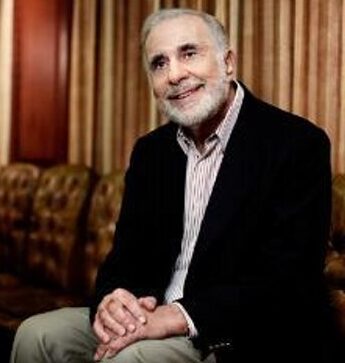Billionaire activist investor Carl Icahn and his company, Icahn Enterprises (IEP), have been fined $2 million by the United States Securities and Exchange Commission (SEC) for failing to disclose significant personal margin loans.
The SEC announced on Monday that Icahn had pledged a substantial portion of his company’s shares to secure billions in loans without informing shareholders or federal regulators, as required by law.
The settlement, which totals $2 million in fines—$500,000 from Icahn personally and $1.5 million from Icahn Enterprises—was reached without Icahn admitting or denying any wrongdoing.
This development follows a broader investigation into Icahn’s financial dealings, initiated after a damning report by short-seller Hindenburg Research in May 2023, which accused Icahn Enterprises of several financial missteps.
Carl Icahn is a well-known figure in the world of finance, having built a reputation as a corporate raider in the 1980s. He later transitioned into what is known as an activist investor, where he uses his significant influence as a shareholder to push for changes in companies.
These changes often include restructuring, management shake-ups, or asset sales that Icahn believes will increase shareholder value.
Icahn’s investment style, which is often aggressive, has earned him both praise and criticism. Supporters argue that he has a keen eye for undervalued companies and the ability to turn them around, benefiting all shareholders.
Critics, however, accuse him of being more interested in short-term gains at the expense of long-term stability. His actions have often led to significant movements in the stock market, with companies he targets sometimes experiencing sharp rises or falls in their stock prices.
The SEC’s charges against Icahn stem from his failure to disclose that he had pledged anywhere from 51% to 82% of Icahn Enterprises’ shares to secure personal margin loans.
These loans are a way of borrowing money using the value of owned stocks as collateral. While margin loans can be a useful tool for investors, they also carry significant risks, especially if the value of the collateralized shares drops.
As the controlling shareholder of Icahn Enterprises, Icahn was required to make Schedule 13D filings.
These filings are crucial because they provide transparency about what a controlling shareholder plans to do with their influence over a company. Importantly, these filings must include information about any encumbrances, such as loans, on a shareholder’s stake.
Failure to disclose such details is a serious violation of federal securities laws, as it prevents other shareholders and regulators from fully understanding the financial position and risks associated with the company.
Osman Nawaz, a senior SEC official, emphasised the importance of these disclosures, stating, “The federal securities laws imposed independent disclosure obligations on both Icahn and IEP.
These disclosures would have revealed that Icahn pledged over half of IEP’s outstanding shares at any given time.”
The SEC’s announcement had an immediate impact on the stock market. Following the news, Icahn Enterprises’ shares dropped by 6% by midday Monday.
This decline adds to the financial challenges facing Icahn Enterprises, which had already seen its stock price come under pressure following the Hindenburg Research report.
The May 2023 report by Hindenburg Research was particularly damaging. The firm accused Icahn Enterprises of inflating the value of its holdings and running what it described as a “Ponzi-like” structure.
Although Icahn strongly denied these accusations, the report raised concerns among investors and regulators, leading to closer scrutiny of Icahn’s financial activities.
In July 2023, two months after the Hindenburg report, Icahn amended his disclosures to include information about his margin borrowings.
This late disclosure did little to calm the fears of investors, and the ongoing investigation by the SEC added to the uncertainty surrounding Icahn Enterprises.
In a statement provided to CNBC, Icahn expressed relief at the settlement, saying, “The government investigation that followed has resulted in this settlement which makes no claim IEP or I inflated NAV or engaged in a ‘Ponzi-like’ structure.
“We are glad to put this matter behind us and will continue to focus on operating the business for the benefit of unit holders.”
Despite the settlement, Hindenburg Research remains unconvinced. In a post on the social media platform X (formerly known as Twitter), Hindenburg reiterated its belief that Icahn Enterprises is “still operating a Ponzi-like structure” and stated that it remains short on the stock, indicating they expect its price to fall further.
The situation surrounding Icahn and his company is a stark reminder of the importance of transparency in the financial markets. While Icahn has successfully navigated many challenges in his career, the recent scrutiny from regulators and the market may signal a more challenging period ahead for both the billionaire and his enterprise.

